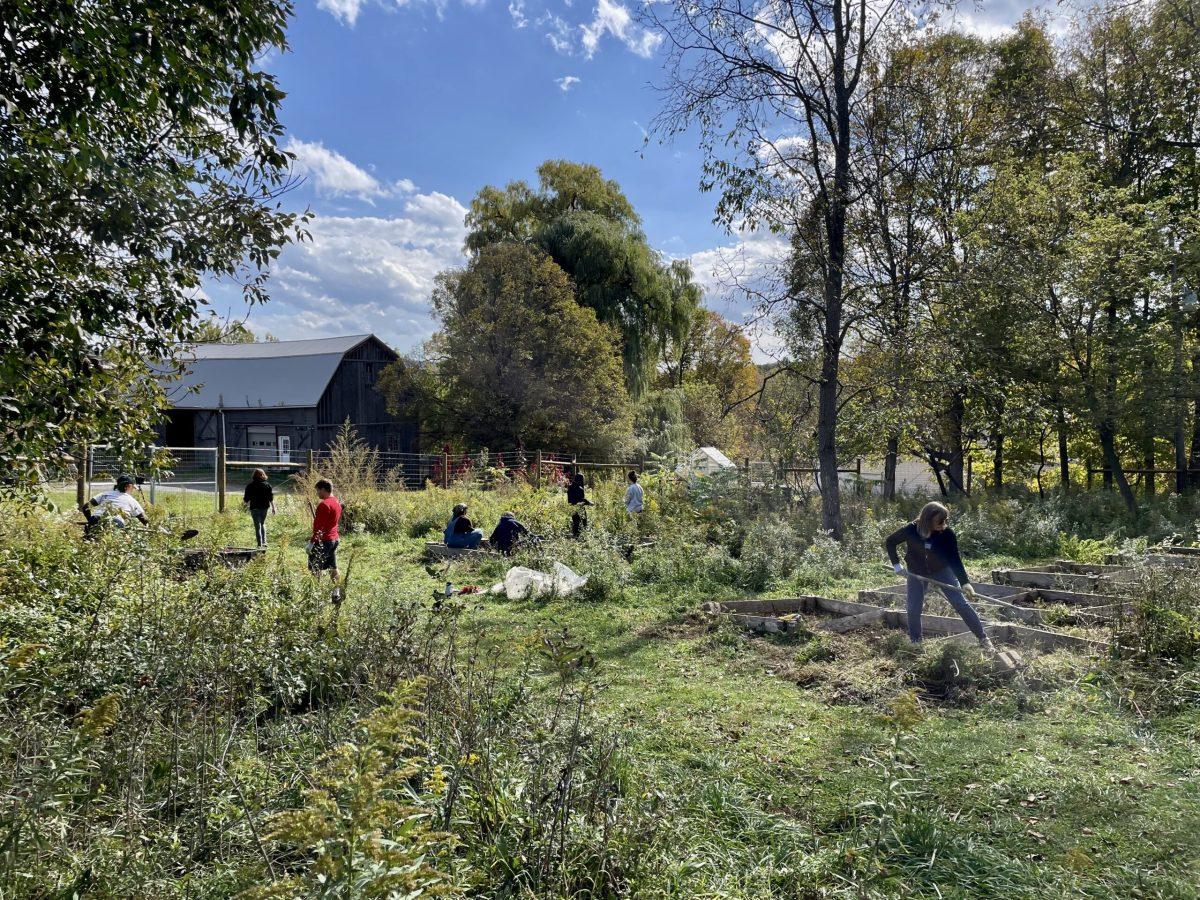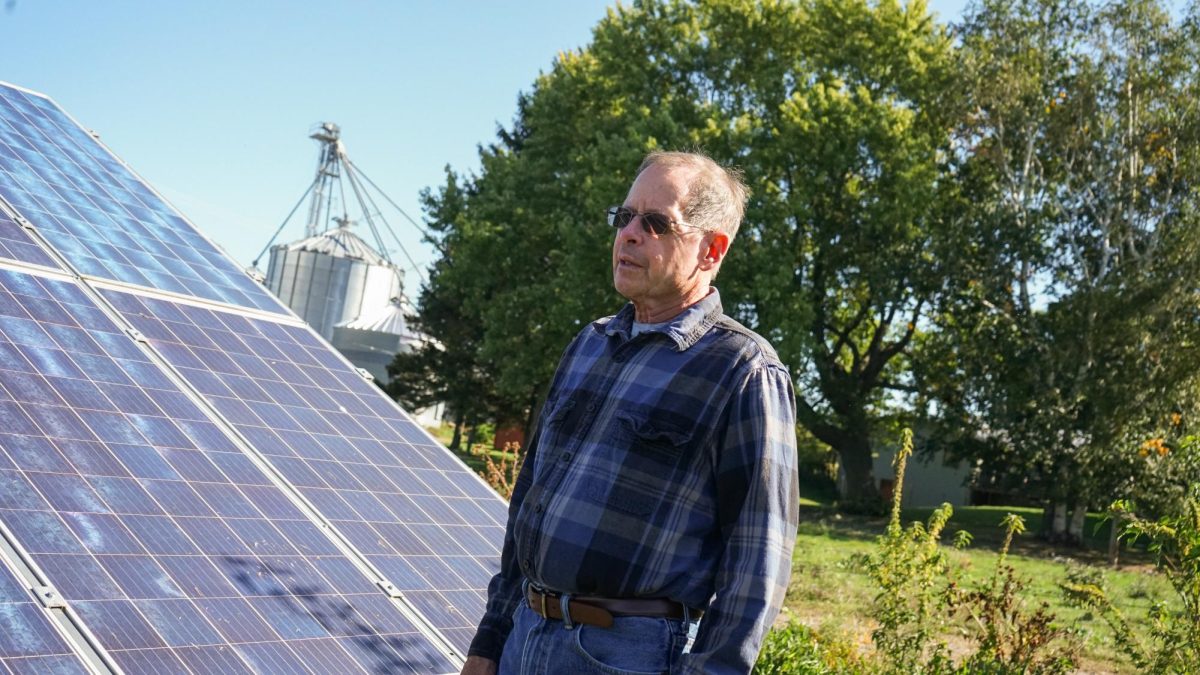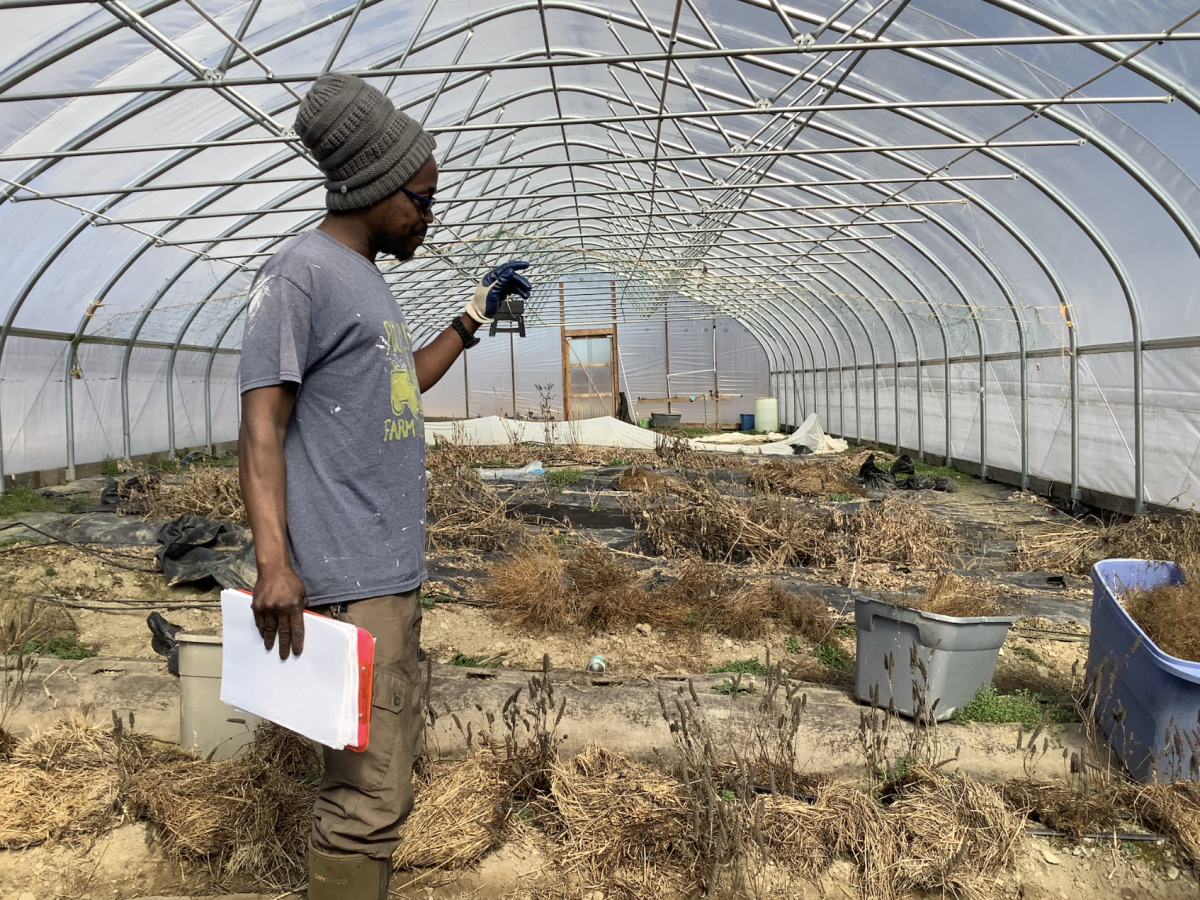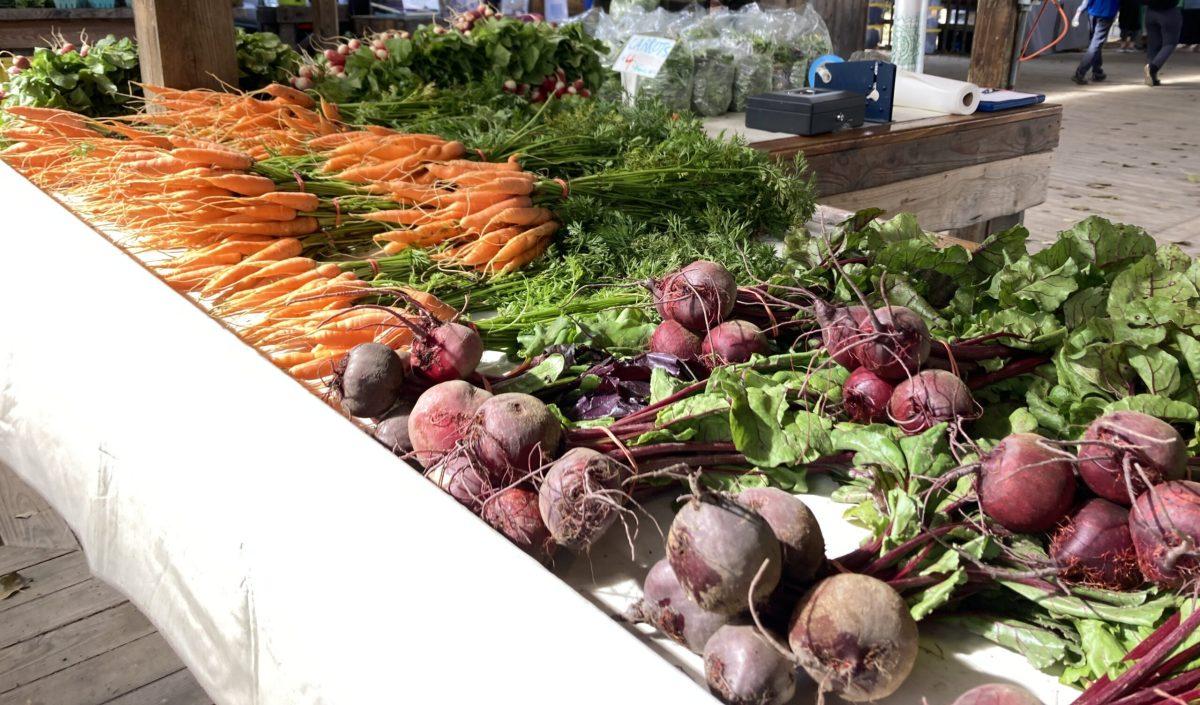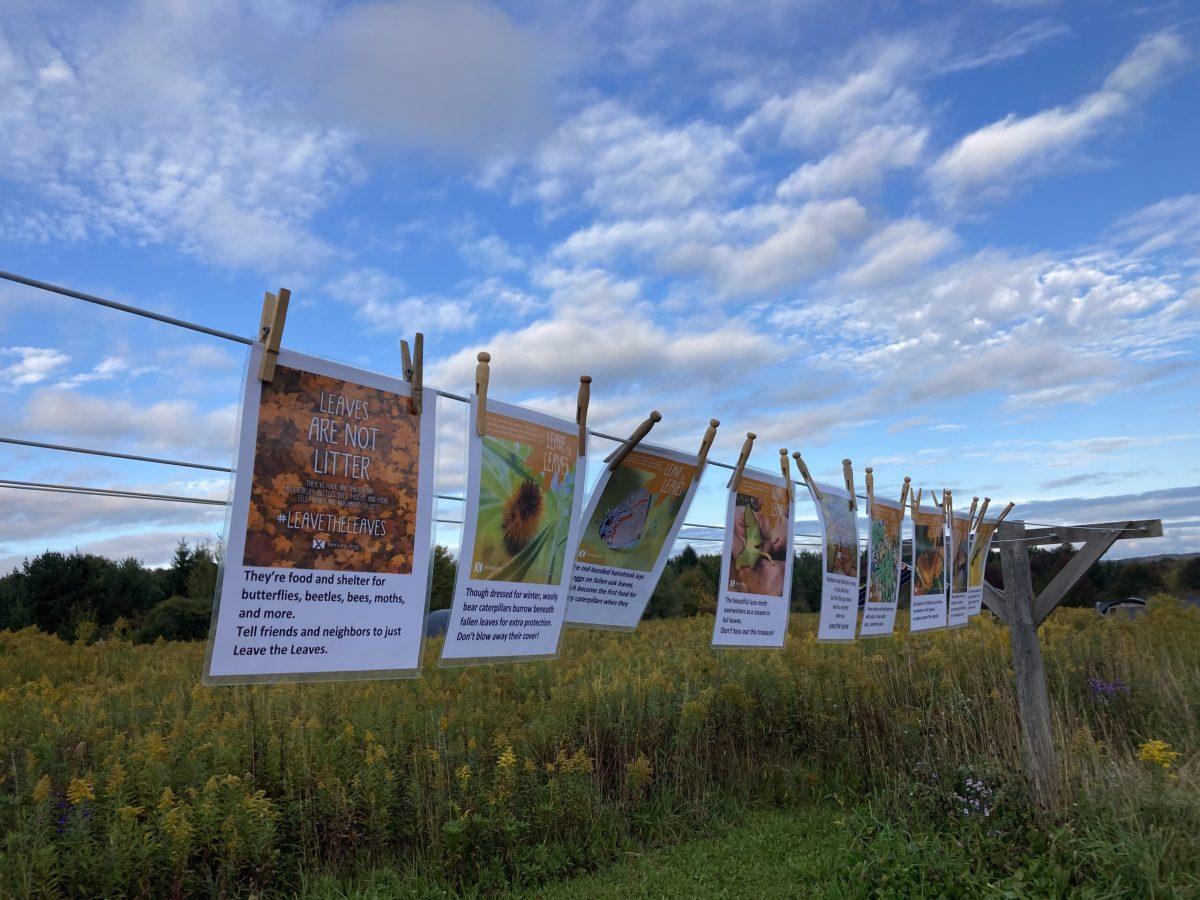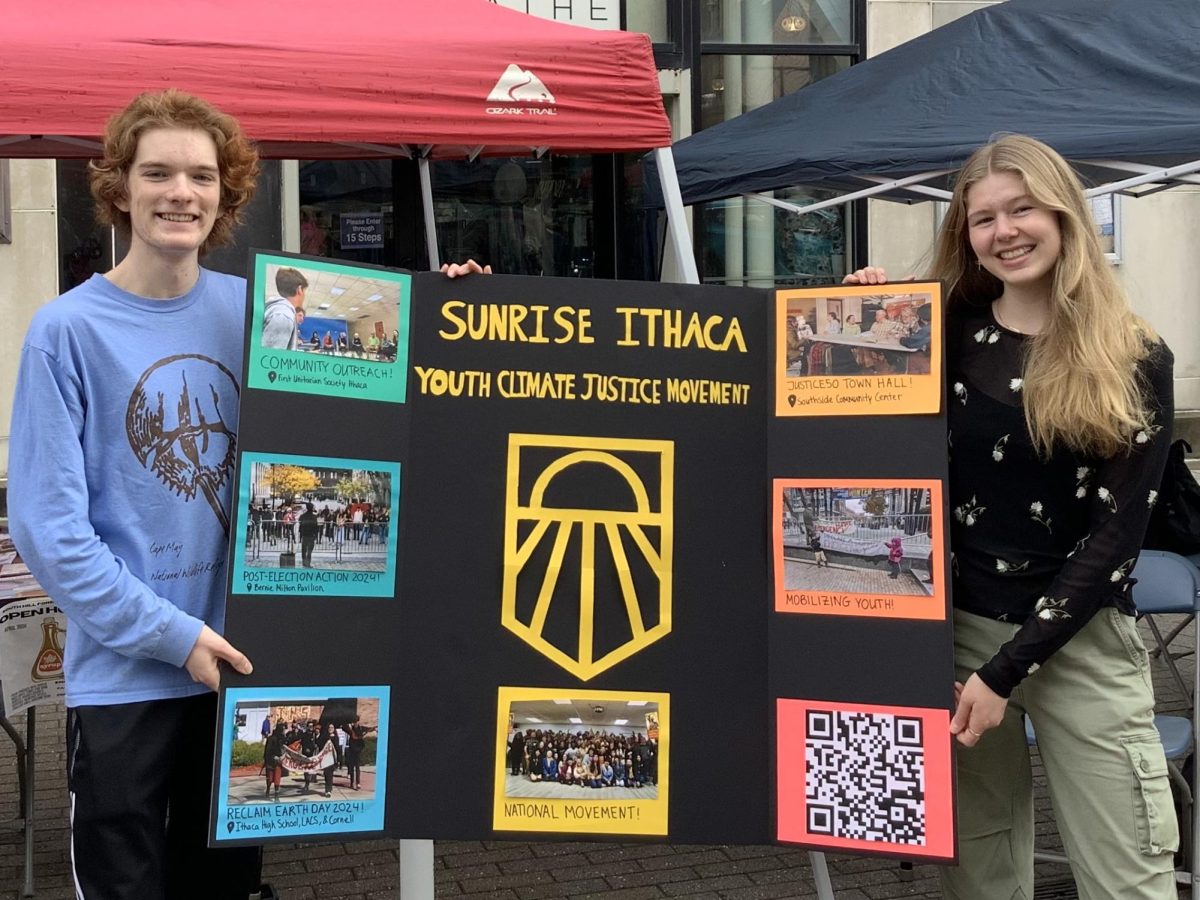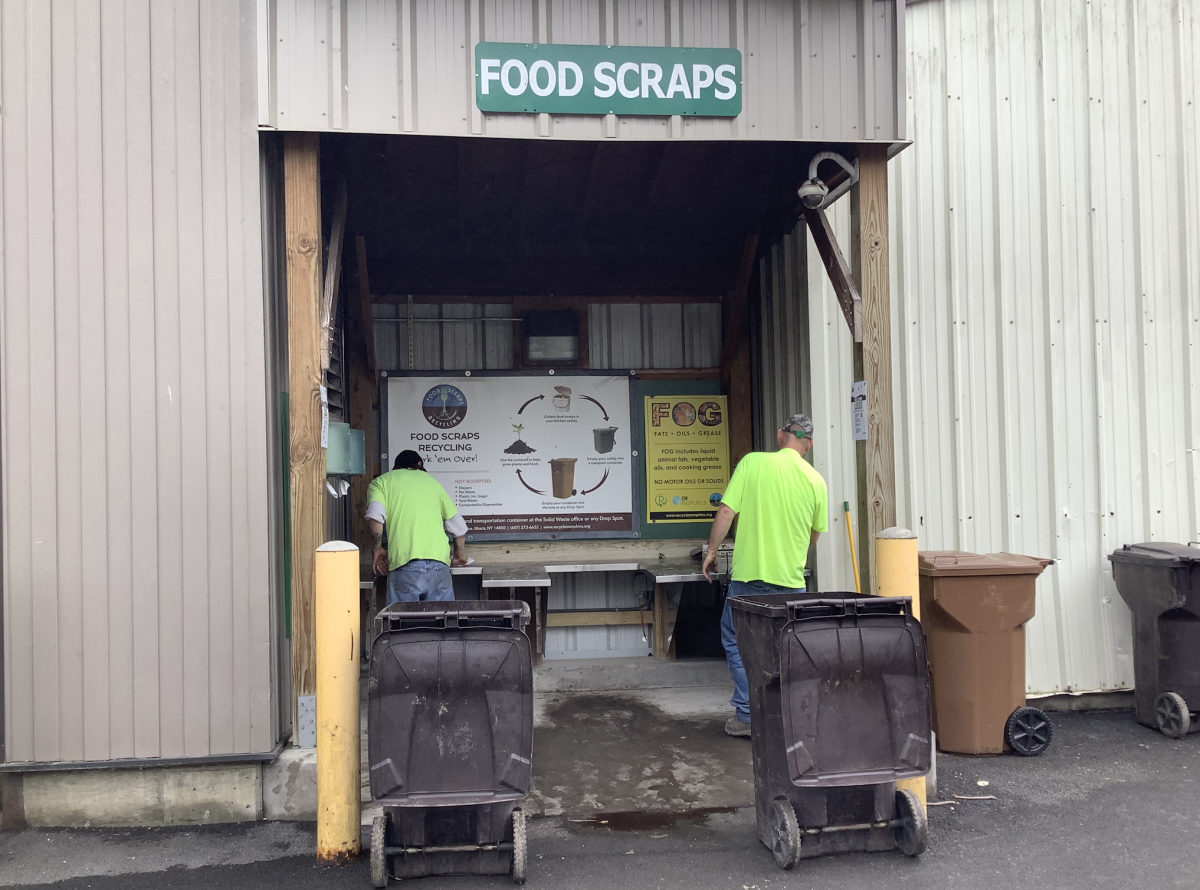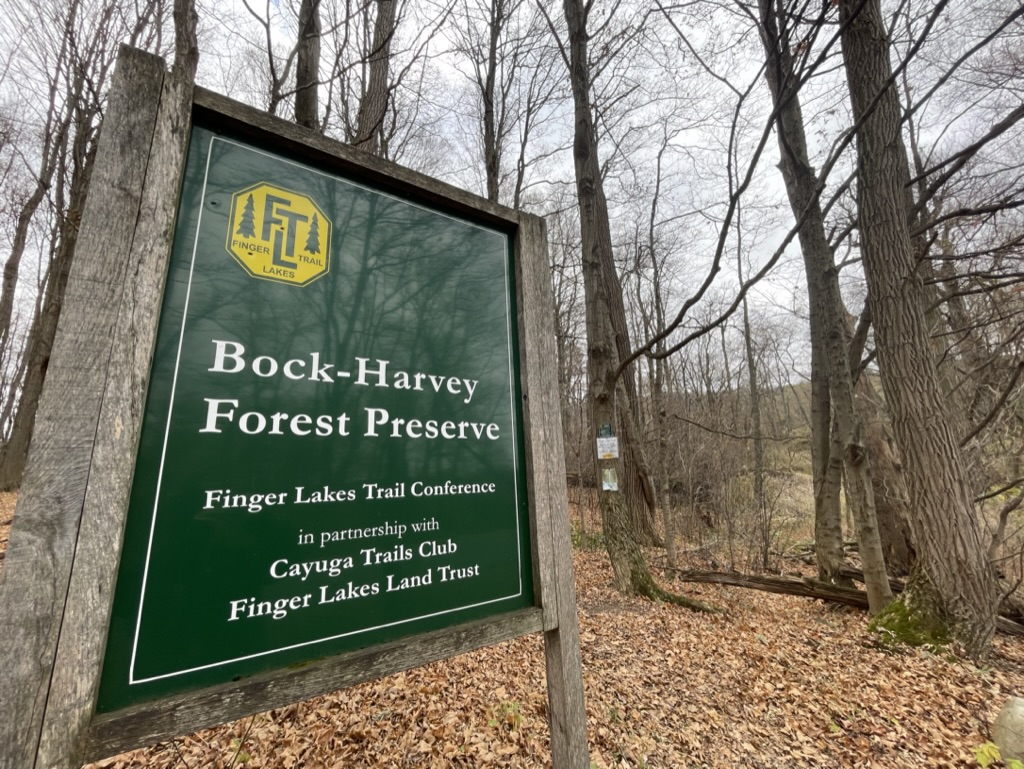The Learning Farm, a roughly 16-acre property nestled next to Robert H. Treman State Park in Ithaca, educates children and families about the importance of sustainability and agriculture.
The farm offers after-school programs, summer camps, and farm visits in addition to being an ecotourism spot in Ithaca. Programs for children focus on STEAM education which stands for science, technology, engineering, art, agriculture and math at the farm. Co-owner and head farmer Pete Núñez said that the main goals of the farm are to share their knowledge about regenerative farming and help people connect back to the land.
“We wanted to focus on agriculture, farming, and sustainability,” Núñez said. “The kids are out here planting, learning about the different trees that are at the farm, all the different animals … so they are learning the importance of sustaining and taking care of this amazing earth that we have.”
The Learning Farm works to build community through their work and on October 12, 2023, a dozen volunteers from Ithaca College explored the farm and helped Núñez for the college’s Fall Day of Service.
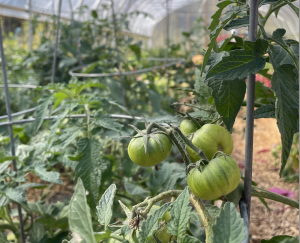
IC volunteers in the community
Sybil Conrad, director of Campus Center, and Samantha Elebiary, associate director of career engagement and education in the Center for Career Exploration and Development worked together with a nine-person committee of staff and a student to put together the Day of Service for students this fall.
Conrad said that the college used to have a staff member working in the Office of Student Engagement to coordinate student service opportunities but that position no longer exists. The college does have Service Saturdays but those are only available for Leadership Scholars on campus.
Conrad said the three goals this year for the working committee is to host a fall service day, spring service day and create a website that will help connect students to other volunteer opportunities.
While the farm is run by co-owners Christa and Pete Núñez, they hire a staff member to assist with the after-school program and hire seasonal workers for their summer programs and are looking for additional help as farmhands. Pete emphasized how much work it takes to run a farm alone, highlighting the work they do with Cornell University, Ithaca College and the community for volunteer workdays.
After touring and learning about the farm, faculty and students spent the day clearing and mulching around grapevines; picking plants and prepping beds in the greenhouse for next season; and weeding raised garden beds.
Elebiary talked about why taking part in service is important not just for students but for all people.
“I think that as human beings, giving back to your community, being involved, connecting with the people you are living side by side with … it creates this ecosystem and culture of giving back,” Elebiary said.
Junior Jordan Orlando said she saw flyers for the Day of Service and thought it would be a fun fall break activity since she was staying on campus.
“I think not only is volunteering a way to learn about resources and opportunities you might be interested in and a different way to give back to your community, for me it’s also a really fun way to get your hands dirty, meet new people and do something for someone else,” Orlando said. “And that’s always a good feeling to help out.”
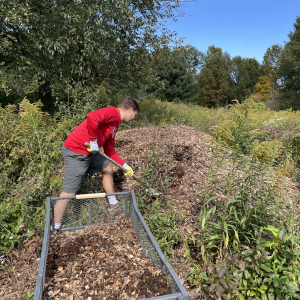
A farm in a network
The Learning Farm has filed plans with the town of Ithaca to expand its operations. The farm already has cabins but plans to create yurts and an outdoor kitchen in the next year. Núñez talked about the area becoming an eco-tourism zone which attracts people to visit.
The farm is also part of the Farming for Freedom Trail, which, created by Christa Núñez, is an “agri-tourism network that links farmers of color to one another and to the community at large, uplifting farmers who are contributing at the core of food justice work as well as equitable and ecologically sound land governance endeavors.”
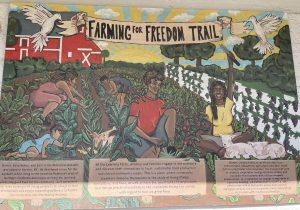
Núñez also spoke about the goals that he had for the network, emphasizing education above all else.
“The whole goal of building all those things is to bring in people and then educate them on the importance of farming, especially regenerative farming, agriculture and sustainability,” Núñez said. “We’re hoping that if we can get the audience here and stay with us then we can take an opportunity to teach them. They can see it first-hand.”

